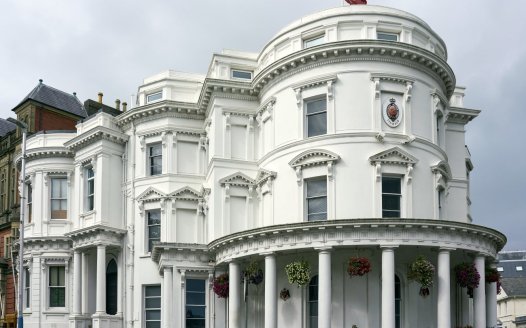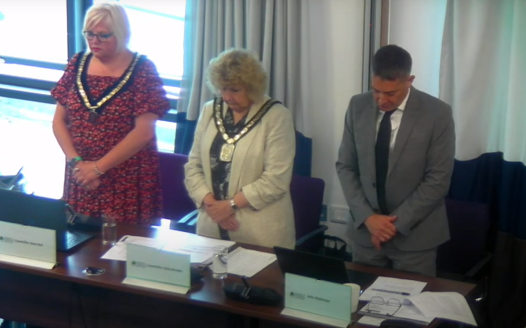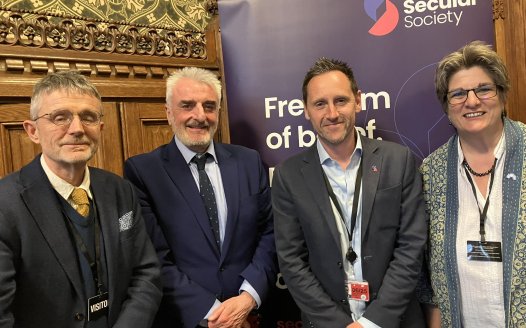Vast majority of Welsh councils no longer hold prayers during meetings
Posted: Sun, 23rd Jul 2017
Councils across Wales no longer hold prayers as part of their official business after the National Secular Society won a court battle over the practice.
NSS analysis of new research from the BBC has revealed that almost none of Wales's local authorities now holds official prayers during meetings.
Eighteen of the 22 unitary authorities in Wales did not hold prayers as part of council business. Only one, Denbighshire, said it did so regularly. 13 others regularly hold prayers separate from council business. In theory this means atheists or those of other faiths do not have to attend, but in at least two cases there appears to be no meaningful separation between the prayers and official business.
Vale of Glamorgan recently re-introduced Christian prayers at the request of a new mayor after her predecessor, had 'humanist blessings'.
The National Secular Society said councils "shouldn't be clubs for Christians" but the Church in Wales said prayer or reflection "could be hugely beneficial" and provide an opportunity to "ask for God's guidance on our decisions".
The BBC obtained its information under the Freedom of Information Act.
In 2012 the High Court ruled that the prayers said at Bideford Town Council were not lawful, as there was no statutory power to hold them under the Local Government Act 1972. The judge said prayers could only be said where councillors had not been formally summoned to attend.
The ruling came after an atheist councillor complained about the practice and the NSS initiated a judicial review of it. It was seen as a test case which could affect local councils across England and Wales.
In 2015 the government changed the law in England. The Local Government (Religious etc. Observances) Act made provision for the inclusion of prayers, "other religious observance" or "observance connected with a religious or philosophical belief" at local authority meetings. But (except for a few cross border authorities) the Act does not apply in Wales.
The NSS has campaigned for prayers to be clearly separated from official Council business in order to protect equality and freedom of and from religion.
Stephen Evans, NSS campaigns director,said: "It's clear that the vast majority of Welsh councils have either scrapped prayers altogether or removed them from the body of their meetings. These arrangements, which we campaigned for, allow councillors and members of staff who do not wish to participate in prayers to avoid them without having to excuse themselves.
"Local councils shouldn't be clubs for Christians and unless acts of worship are properly separated from official business, the religious freedom of non-Christians will not be adequately respected.
"Where the formal separation is tokenistic or unclear, and where any Councils are failing in their legal obligations, we will be writing to urge them to ensure that their meetings are both lawful and equally welcoming to all sections of society. Everyone has the right to manifest their religion, but that shouldn't extend to allowing believers to impose acts of worship on those that do not share their faith."







